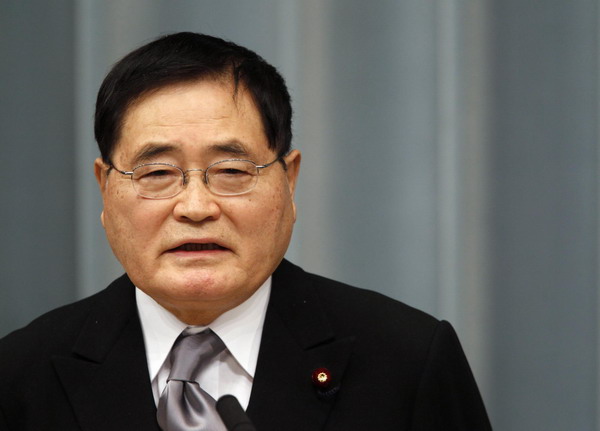Asia-Pacific
Japan anti-fiscal reformer Kamei quits new cabinet
(Agencies)
Updated: 2010-06-11 14:06
 |
Large Medium Small |
TOKYO - Japan's banking minister Shizuka Kamei, an advocate of big spending, said on Friday he would quit the cabinet, improving the chances that Prime Minister Naoto Kan can forge ahead with efforts to rein in the country's huge debt.
|
 Japan's Banking Minister Shizuka Kamei speaks to journalists during a news conference at the Prime Minister's official residence in Tokyo June 8, 2010. [Agencies] |
Kan, who took over the nation's top job after his unpopular predecessor quit abruptly last week, has made tackling a public debt that is already twice the size of Japan's GDP a top priority amid market concerns about sovereign debt risk.
| ||||
Support for the Democrats has jumped since Kan took over, boosting chances of a robust performance in the upper house poll expected to be held on July 11, and Kamei's resignation could be another plus, analysts said.
"My sense is that Kamei leaving will probably increase public support for Kan, because it looks as though he isn't going to be pushed around by Kamei," said Columbia University professor Gerald Curtis.
"It's a good thing, because Kamei was constantly baiting the prime minister and undermining the authority of the office."
ELECTION OUTLOOK
Kamei's small People's New Party (PNP), whose votes the Democrats need for now to maintain a majority in the upper house, will stay in the coalition. Media reported that Kamei wanted his post to go to PNP Secretary-General Shozaburo Jimi, an upper house lawmaker.
But Chief Cabinet Secretary Yoshito Sengoku told reporters he would take on the post for now.
No other PNP lawmaker is likely to have the clout of Kamei, known for his calls for big spending, his attacks on free-market capitalism, and his pressure on the Bank of Japan to do more to fight deflation.
Kamei formed his People's New Party in 2005 with a band of rebels from the then-ruling Liberal Democratic Party (LDP) to protest a plan to privatise the giant postal system.
He decided to resign after the Democrats rejected his call to extend the current session of parliament, set to end on June 16, to enact a bill that would roll back the privatisation plan.
Many Democrats want the upper house election to take place as soon as possible to capitalise on a leap in voter support after Kan took over. Extending the session more than a day or two would have pushed back the upper house vote.
Analysts still question whether the Democrats can win an outright majority in the 242-seat upper house, but the party's chances have clearly improved since Kan took over from the indecisive Yukio Hatoyama, who quit with his ratings in tatters just nine months after the Democrats swept to power.
"It all depends on how effective Kan is as prime minister," Curtis said.



